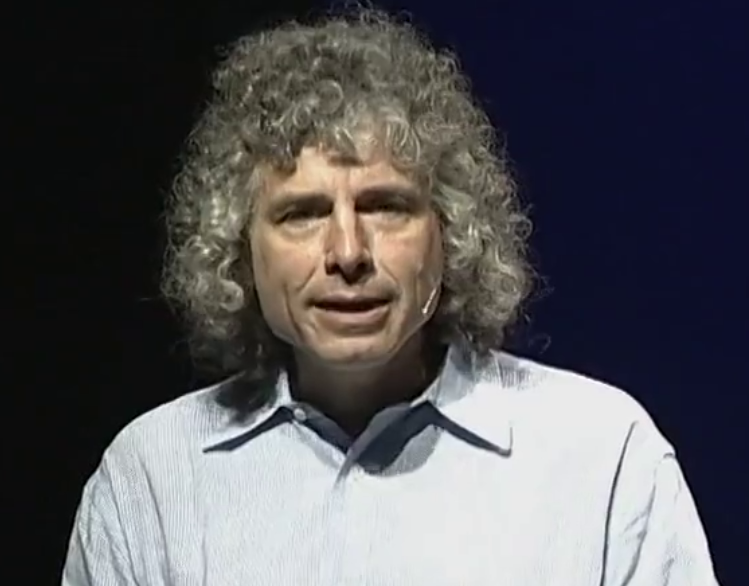We see it in the constant appearance of slang and jargon, of the historical change in languages,
我们看到俗语和术语不断产生,历史上语言在变化
in divergence of dialects and the formation of new languages.
方言在分支,新的语言在形成
So language is not so much a creator or shaper of human nature, so much as a window onto human nature.
所以语言并不只是创造、塑造人性之物,同样是反映人性的窗口
In a book that I'm currently working on,
我正在写的一本书中
I hope to use language to shed light on a number of aspects of human nature,
我希望能阐明人性的一些方面
including the cognitive machinery with which humans conceptualize the world
包括认知机能,人们靠这个把世界概念化
and the relationship types that govern human interaction.
还有掌管人类互动的各类关系。

And I'm going to say a few words about each one this morning.
今天早上,我将对它们逐一简要介绍。
Let me start off with a technical problem in language that I've worried about for quite some time
让我从一个语言中的技术性问题开始,我研究这个问题已经有一段时间了
and indulge me in my passion for verbs and how they're used.
希望你们能包涵一下,包涵我对动词和它们用法的热情
The problem is, which verbs go in which constructions?
问题在于,哪个动词用于哪个构式?
The verb is the chassis of the sentence.
动词是句子的基座,
It's the framework onto which the other parts are bolted.
其他部分都安在这个基座上。
Let me give you a quick reminder of something that you've long forgotten.
让我提醒你们一下,这是你们早已忘记的东西。
An intransitive verb, such as "dine," for example, can't take a direct object.
不及物动词,比如“用餐”,不能带有直接的宾语
You have to say, "Sam dined," not, "Sam dined the pizza."
你得说:“山姆用餐了",而不是“山姆用餐了比萨饼”
A transitive verb mandates that there has to be an object there:
一个及物动词要求必须有宾语:
"Sam devoured the pizza." You can't just say, "Sam devoured."
“山姆吞吃比萨饼”。你不能只是说“山姆吞吃”。
There are dozens or scores of verbs of this type, each of which shapes its sentence.
有许许多多这类的动词,每个都塑造着句子。












